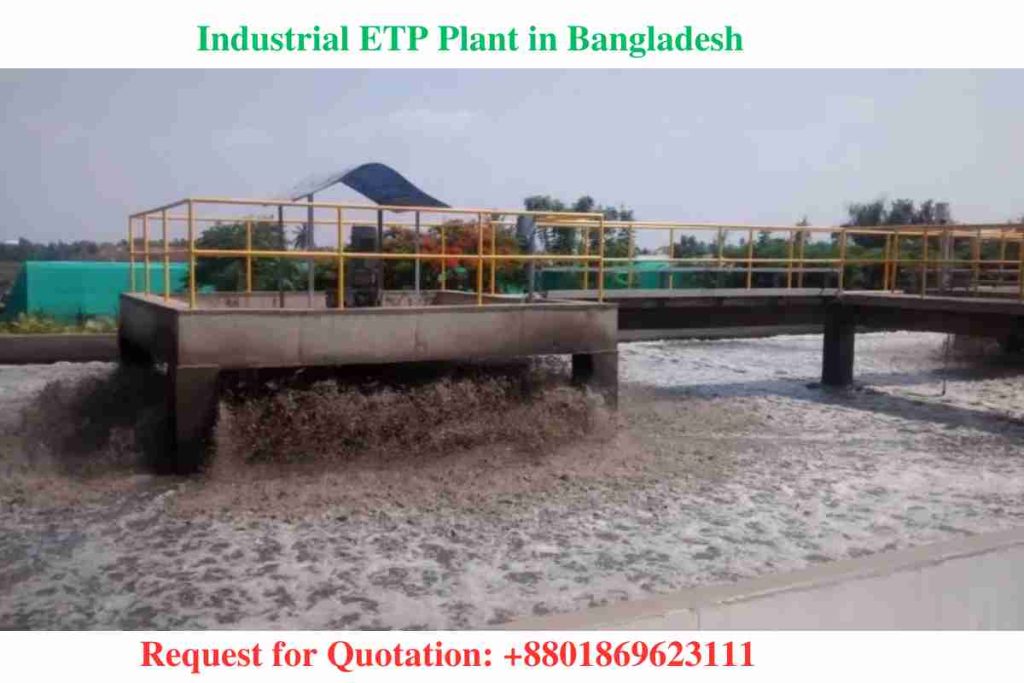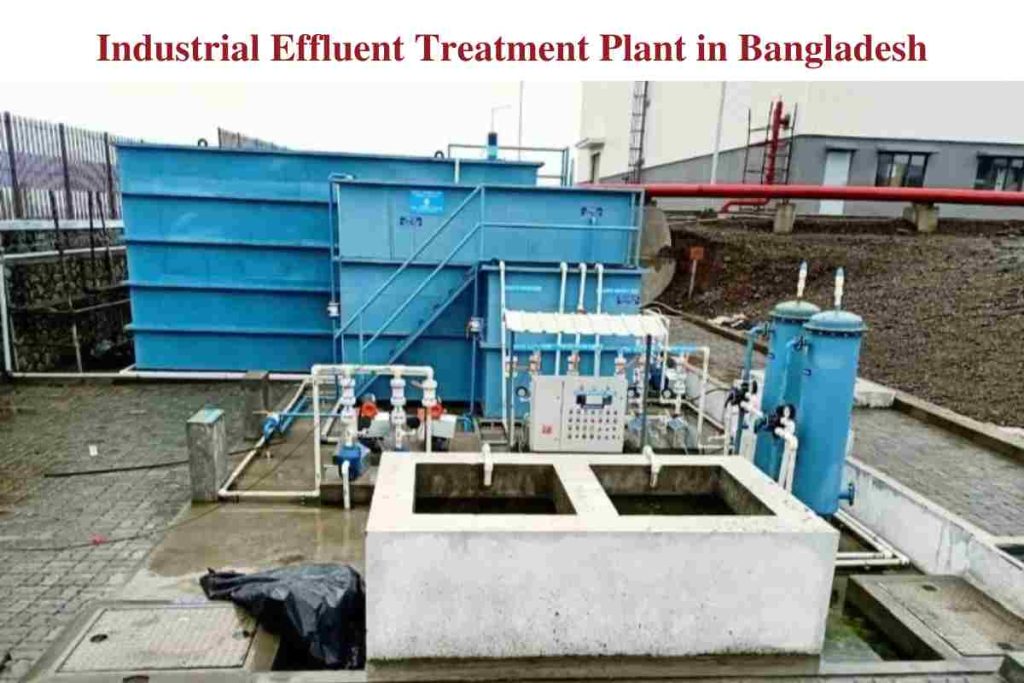ETP Plant in Bangladesh for Industrial Wastewater Management in Dhaka
In recent years, Bangladesh has experienced significant industrial growth, particularly in urban areas like Dhaka. While this growth brings economic prosperity, it also poses challenges in managing industrial wastewater effectively. The release of untreated or inadequately treated wastewater can have extreme environmental and general wellbeing results. To resolve this issue, the foundation of Effluent Treatment Plant (ETP) systems has become significant in Bangladesh. This article investigates the importance of ETP plants in Bangladesh for industrial wastewater management in Dhaka and talks about their benefits and challenges.

Industrial Growth in Bangladesh
Bangladesh has seen quick industrialization, with a different range of industries like materials, pieces of clothing, drugs, leather, and food processing emerging as key supporters of the nation’s economy. As industrial exercises increase, so does the volume of wastewater produced, containing different pollutants and contaminants that can hurt the climate and human wellbeing whenever left untreated.
The Challenge of Wastewater Management
Legitimate management of industrial wastewater is fundamental to forestall contamination of water bodies and guarantee a sustainable climate. Unfortunately, many industries in Bangladesh release untreated or somewhat treated wastewater straightforwardly into streams, lakes, or close by land, leading to water contamination and soil debasement. This training hurts sea-going life as well as influences the nature of water assets, making them unsuitable for human use.
Understanding ETP Plants
Effluent Treatment Plants (ETPs) are particular systems intended to treat and clean industrial wastewater before its delivery into the climate. These plants utilize different physical, substance, and natural cycles to eliminate pollutants and contaminants from the wastewater, making it alright for removal or reuse.
Functions of an ETP Plant
An ETP plant performs a few pivotal functions to guarantee compelling wastewater treatment:
- Preliminary Treatment: The wastewater goes through screening and coarseness expulsion cycles to eliminate huge solids and garbage.
- Primary Treatment: Actual cycles, for example, sedimentation and buoyancy eliminate suspended solids and oils from the wastewater.
- Secondary Treatment: Natural cycles, including actuated slop or trickling channel systems, corrupt organic matter through the activity of microorganisms.
- Tertiary Treatment: Extra treatment steps, like filtration, disinfection, and substance precipitation, further refine the wastewater, removing leftover pollutants and microbes.

Importance of ETP Plant in Gazipur
The foundation of ETP plants in Bangladesh holds huge importance for industrial wastewater management in Dhaka and other urban areas. Here are the key motivations behind why ETP plants are fundamental:
- Environmental Impact: By implementing ETP systems, industries can significantly lessen their environmental footprint by treating their wastewater before discharging it. ETP plants eliminate unsafe pollutants, including weighty metals, organic mixtures, and harmful substances, preventing their entrance into water bodies. This safeguards oceanic ecosystems and jam the by and large environmental balance.
- Economic Benefits: ETP plants offer substantial economic benefits to industries. Treating wastewater on location diminishes reliance on outside wastewater treatment offices, resulting in cost savings. Also, the treated water can often be reused within industrial cycles, reducing freshwater utilization and the related expenses. Furthermore, compliant industries are bound to draw in international purchasers who focus on environmentally dependable practices.
- Legal Compliance: The government of Bangladesh has carried out stringent guidelines regarding wastewater release standards. Industrial units are expected to fulfill explicit effluent quality guidelines set by the Branch of Climate (DoE). ETP plants assume a urgent part in helping industries conform to these standards and stay away from punishments or legal activities. Compliance likewise enhances the picture and notoriety of businesses on the lookout.
- Role of Government and NGOs: The government of Bangladesh has been effectively promoting the reception of ETP plants and providing incentives to industries to invest in wastewater treatment offices. Different NGOs and international organizations likewise assume a crucial part in raising mindfulness about the importance of ETP plants and providing specialized assistance and limit building to industries.
- Challenges and Solutions: While ETP plants offer significant benefits, their execution and activity are not without challenges. A few normal challenges include high capital investment, functional expenses, talented workforce prerequisites, and monitoring and maintenance. Notwithstanding, these challenges can be tended to through government support, financial incentives, and joint effort between industries, administrative bodies, and NGOs. Public-private organizations can assume a vital part in overcoming these challenges and promoting sustainable wastewater management rehearses.
- Future Perspectives: The importance of ETP plants in Bangladesh is supposed to develop further as the nation continues its industrial expansion. With increased mindfulness about environmental sustainability and the enforcement of stricter guidelines, more industries are likely to invest in ETP systems. Advancements in innovation and research will likewise add to the improvement of more proficient and financially savvy ETP plants, ensuring better wastewater management in the future.
Conclusion
In conclusion, the foundation of ETP plants in Bangladesh is of most extreme importance for successful industrial wastewater management in Dhaka and other industrial center points. These plants assist industries with complying with environmental guidelines, diminish their environmental impact, and accomplish economic benefits. Through deliberate efforts by the government, industries, and NGOs, Bangladesh can gain significant headway in managing industrial wastewater and building a sustainable future.
FAQs about ETP Plant
Are ETP plants just appropriate for huge industries?
No, ETP plants can be planned and altered to meet the necessities of both enormous and little industries. More modest industries can settle on smaller and measured ETP systems that are practical and effective.
Can treated wastewater from ETP plants be reused?
Indeed, in many cases, the treated wastewater from ETP plants can be reused for different purposes like water system, industrial cycles, or groundwater re-energize subsequent to ensuring its quality fulfills the expected guidelines.
Do ETP plants eliminate all pollutants from wastewater?
ETP plants can really eliminate a large number of pollutants, including organic mixtures, suspended solids, and certain weighty metals. Be that as it may, a few profoundly relentless or harmful pollutants might require particular treatment processes past the extent of traditional ETP plants.
Which role does public mindfulness play in ETP plant execution?
Public mindfulness assumes a urgent part in promoting the reception of ETP plants in Bangladesh. By understanding the environmental and wellbeing impacts of untreated wastewater, individuals can apply strain on industries to focus on sustainable wastewater management rehearses.
How could industries conquer financial challenges related with ETP plant execution?
Industries can investigate different choices like government endowments, low-interest loans, and associations with financial institutions to defeat the financial challenges of implementing ETP plants. Also, investing in energy-effective advancements and optimizing water utilization can assist with reducing functional costs in the long run.